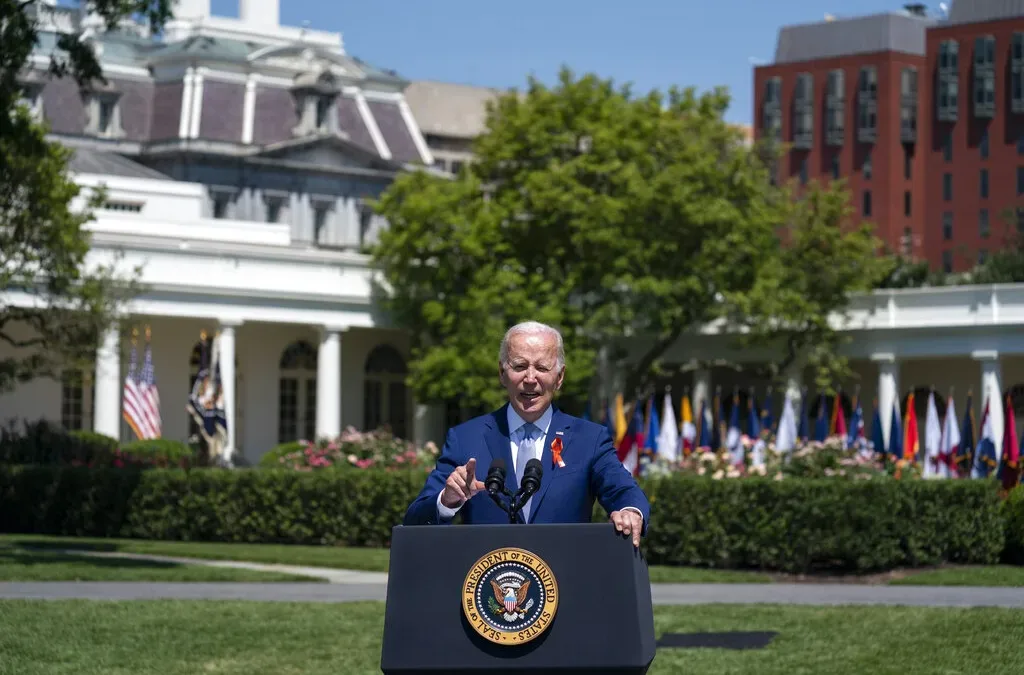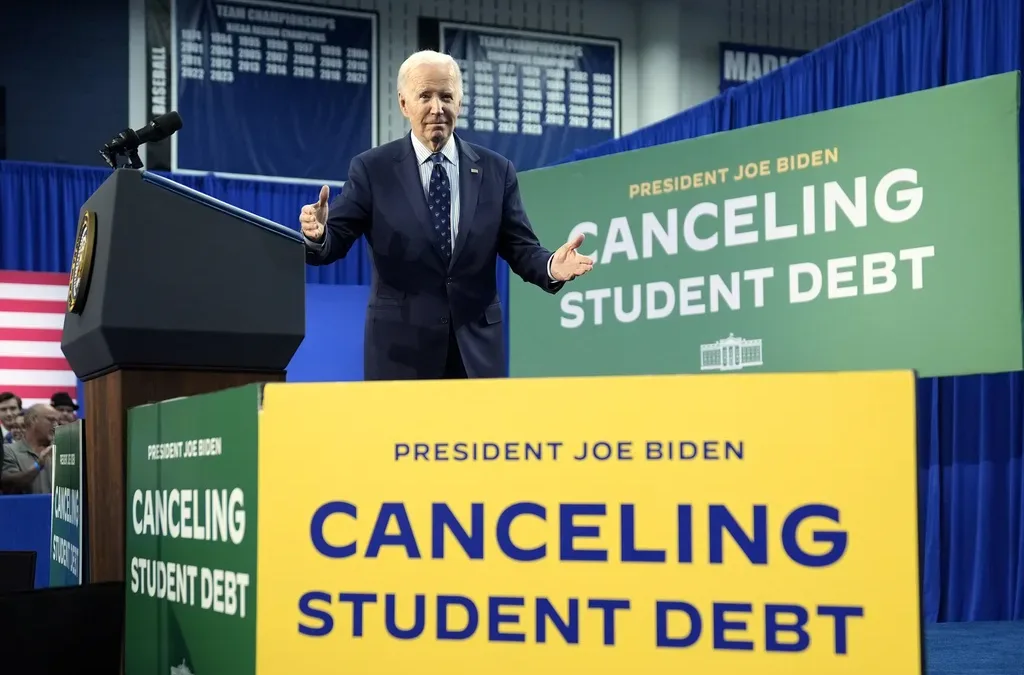
If you’ve watched a full Donald Trump “speech” before, you know his stream-of-consciousness style can be hard to follow. Bouncing around like a pinball from topic to topic, Trump occasionally lands on an applause line, while other times he goes for long stretches without making much sense. However, if you listen closely and parse out the pithy insults, the random tangents and vague references you only understand if you’ve listened to him often, a pattern on certain policy issues actually does emerge at times.
Take his speech this Tuesday in Dubuque, where Trump spoke at considerable length on foreign relations issues, trade and war, more so than he typically does. It’s hard to tell if Trump’s philosophy is isolationist or realpolitik, or if he’s ever taken the time to think over what his opinions are based on. But there certainly is a trend and central reasoning that his foreign relation ideas orbit around.
“The funny thing is we don’t get along with anybody,” Trump told the crowd, criticizing American leaders for negotiating bad deals on a host of issues with other countries. “Here we have deals that are all bad, and everybody hates us.”
When looking at America’s place in the world, Trump – who often touts having authored “The Art of the Deal” – seems to view every relation solely through transactional deals. What is America getting out of its agreements with Germany? With China? With Mexico? And in nearly every case, he believes we’re getting the short of end of the stick, leading him to suggest shifts in policy you don’t typically hear from serious presidential candidates.
“We’re really at a very bad place with Russia,” Trump said in a new riff on European relations. “Now we’re working on the Ukraine and I think that’s fine but why isn’t Europe sort of like leading that whole charge? Why are we always leading? We’re working with the Ukraine – I think it’s terrible, all that stuff.”
Trump noted the U.S. is now sending F-22s (which he called “gorgeous”) to bolster European allies’ resolve in facing Russia’s threats against former Soviet states. Trump, however, would prefer America stay out of it altogether and leave it to countries closer to the action.
“You know, Germany is over there,” he continued. “Germany is far richer than we are. Germany has made a fortune. We protect Germany for no money. We protect South Korea for no money. So Germany is over there right, and they’re not worried about it.”
That curious statement led into Trump suggesting America outright abandon its decades-old alliances with Germany, Japan and South Korea.
“South Korea is doing really well, producing TV sets,” Trump said, tossing in a brag of how many TV units he recently purchased from the Korean War ally. “But why is it that we protect them? We have 28,000 troops over there right now. Which is nothing compared to the million that they have in North Korea. Big army. Okay they [South Korea] don’t pay us anything. What are we doing?”
“Someone said, ‘well that’s not nice, how can you ask them to pay?'” he added. “How can we police when we’re watching the Ukraine, we’re watching South Korea, we’re watching Germany, we’re watching Japan? … We protect Japan. We have a treaty with Japan. If Japan gets attacked, we have to immediately go to their aid. If we get attacked, Japan doesn’t have to help us … that’s the kind of deals we make.”
Trump made similar comments on Saudi Arabia, questioning why America supports the stable, moderate regime when we supposedly get very little in return. He expanded that to Iraq as well, saying he was dismayed America lost “thousands of lives, wounded warriors … two trillion dollars and we have nothing,” adding that China has now come in to take most of the oil.
He again reiterated that he had warned against launching the Iraq War (though he always points to statements he made in 2004 – a full year after the war began), but quickly clarified it didn’t mean he was afraid of war.
“Don’t forget, I’m the most militaristic person,” he boasted to applause. “I would build a military so strong, so powerful, so incredible, nobody would ever use it. We would never have to use it. I would have the best everything.”
Most of all, Trump argued, American leaders “have to be smart” in where they engage in the world, and when they do, it needs to be to benefit America (and perhaps America alone – as he often does, he argued America should have taken all the Iraqi oil for ourselves). For much of that he simply offers himself up as the solution – a tough negotiator who can bully both allies and enemies into giving America what it wants.
There seems to be absolutely no consideration for Trump’s foreign policy stance for things like humanitarian assistance, the spread of democratic ideals, third world development assistance, or even traditional military alliances. Trump’s worldview is completely transactional – what have you done for us lately, Great Britain? That’s a vast departure from previous American foreign policy schools of thought embraced by both Democrats and Republicans, including a nearly complete about-face from the George W. Bush neoconservative years. And yet Republican Party voters are cheering him on, despite Trump representing a huge shift in conservative thought in world affairs without an in-depth corresponding debate on the issue.
Whatever the exact philosophical underpinnings of Trump’s foreign policy ideology is (and let’s be honest, he’s almost certainly just making it up as he goes), it’s certainly not any of the approaches America has followed in world affairs since the first world war. Actually, when you think about it, there might be a model upon which Trump is unwittingly drawing from. A personality-driven man wants to lead a country that worries its former power is slipping and feels disrespected abroad by engaging other nations solely in self-interested ways, backed by a powerful, larger military that he’s unafraid to use to acquire natural resources from other nations.
That sounds an awful lot like Vladimir Putin.
by Pat Rynard
Posted 8/27/15
Politics

Biden announces new action to address gun sale loopholes
The Biden administration on Thursday announced new action to crack down on the sale of firearms without background checks and prevent the illegal...

Biden cancels student loan debt for 2,690 more Iowans
The Biden administration on Friday announced its cancellation of an additional $7.4 billion in student debt for 277,000 borrowers, including 2,690...
Local News

No more Kum & Go? New owner Maverik of Utah retiring famous brand
Will Kum & Go have come and gone by next year? One new report claims that's the plan by the store's new owners. The Iowa-based convenience store...

Here’s a recap of the biggest headlines Iowa celebs made In 2023
For these famous Iowans, 2023 was a year of controversy, career highlights, and full-circle moments. Here’s how 2023 went for the following Iowans:...





